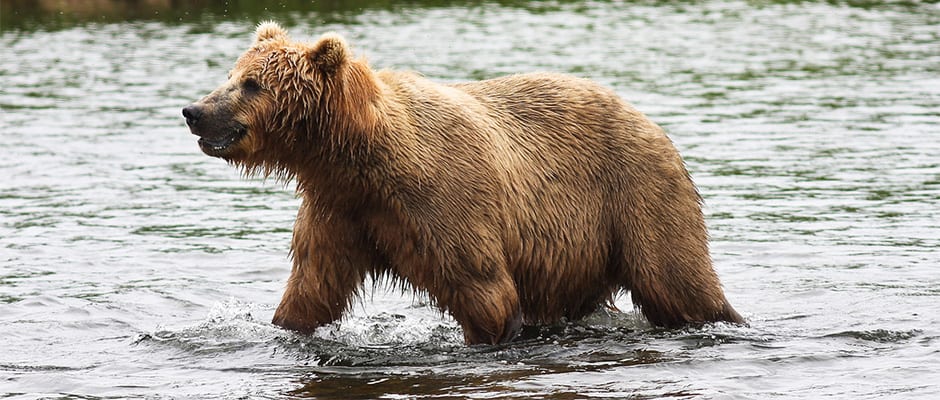Share this article
USFWS to end predator control on Alaskan refuges
The U.S. Fish and Wildlife Service finalized a rule on Aug. 5 that will prohibit non-subsistence predator control measures on all Alaskan National Wildlife Refuges.
The rule overrides state regulations that provide for increased removal of wolves, bears and coyotes in order to promote populations of ungulates to levels that can sustain high human harvest. The state regulations permit multiple removal techniques and aerial shooting to reduce predator populations in certain areas.
USFWS’ rule prohibits predator control on Alaskan refuges unless it is deemed necessary to meet the refuge’s objectives, is consistent with federal mandates, and is based on sound science in response to a conservation concern. The rule prohibits pursuing predators with bait, snares and traps; hunting mother bears with cubs; and taking wolves and coyotes during summer months. It also specifies that a demand for increased wildlife for human harvest cannot be the primary basis for implementing predator control measures.
These restrictions would not regulate subsistence take that is authorized by federal subsistence laws, which provide rural Alaskans with subsistence hunting and fishing opportunities on federal lands and waters.
The USFWS rule has been controversial since it was first proposed in January.The Association of Fish and Wildlife Agencies, along with several other conservation-mission organizations, has expressed its strong opposition to the rule, believing USFWS is undermining the state’s authority to manage wildlife within its own borders. AFWA is concerned the federal agency’s actions will set a precedent, jeopardizing cooperative state-federal relationships not only in Alaska, but across the country.
AFWA is also concerned that by prohibiting predator control on refuges, the rule promotes a passive approach to wildlife management. The group says this will result in both decreased wildlife diversity and lessened public hunting opportunities.
Proponents of the rule, including Defenders of Wildlife, argue that Alaska’s intensive management for select species is intended to benefit human interests rather than wildlife. They believe that the state’s regulations do not align with the guiding principles of the National Wildlife Refuge System, and that USFWS involvement is necessary to ensure sound conservation practices.
“Whenever possible, we prefer to defer to the state of Alaska on regulation of general hunting and trapping of wildlife on national wildlife refuges unless by doing so we are out of compliance with federal law and policy,” USFWS Director Dan Ashe said in an announcement about the rule. “This regulation ensures we comply with our mandates and obligations.”
The rule also provides for emergency, temporary, and permanent closures and restrictions of Refuges, and updates the notification procedure for such closures. The rule takes effect on September 6.
Update, August 17, 2016: Read AFWA’s final statement on FWS’ rule.
Header Image: ©Lisa Hupp/USFWS








